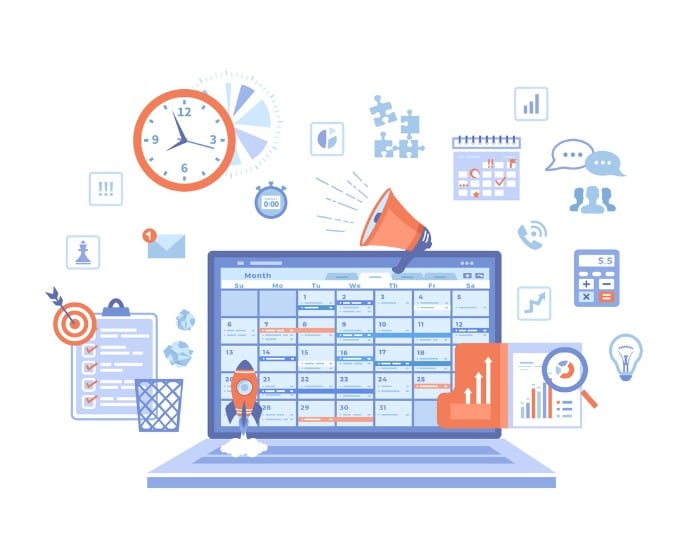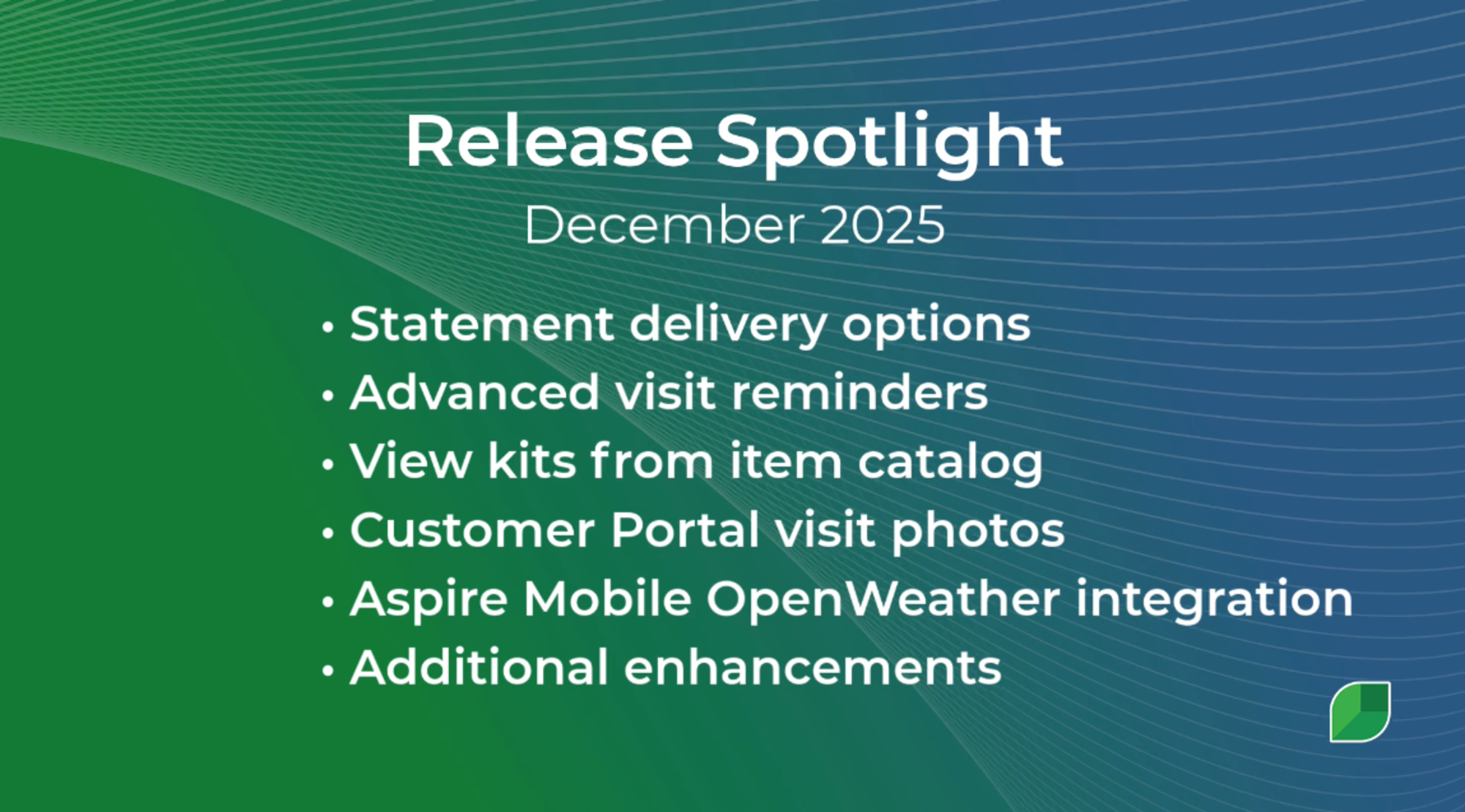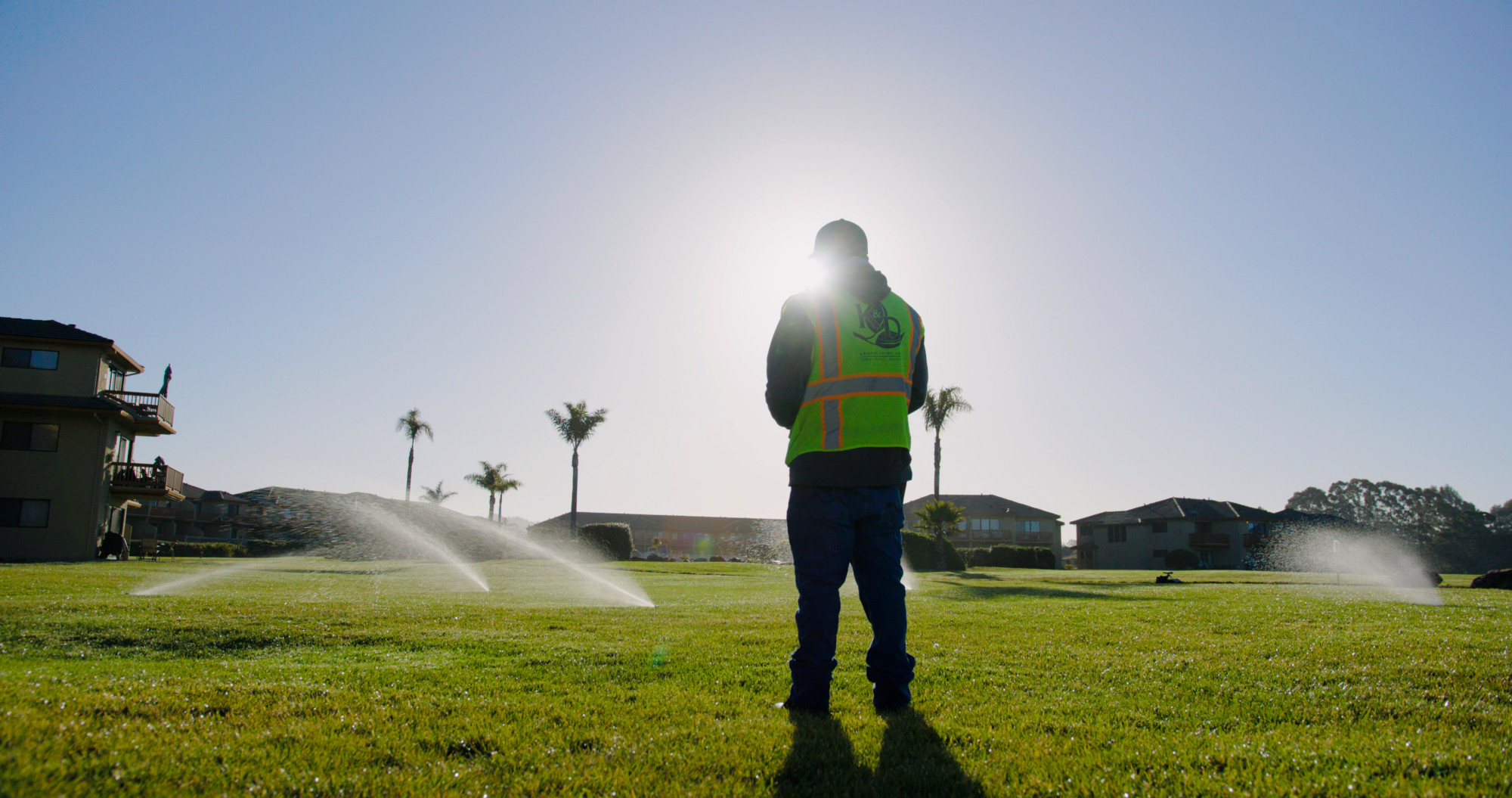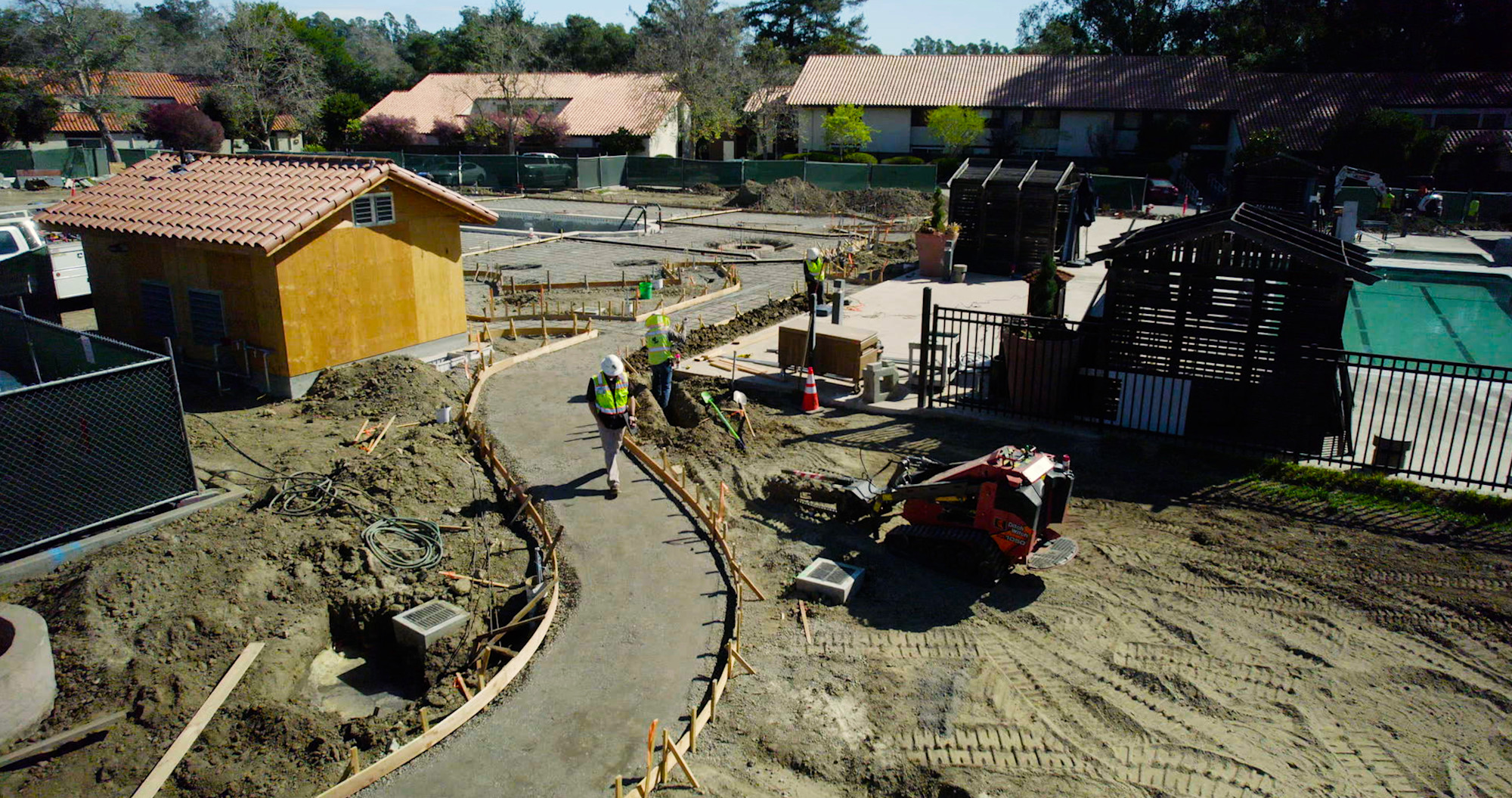Table of Contents
Table of Contents
- How to schedule janitorial jobs step by step:
- How to build a scheduling system for janitorial jobs
- Understand your business needs
- Optimize schedules according to employee skills
- Establish criteria for low- and high-priority jobs
- Schedule gaps between jobs
- Keep track of recurring and one-time jobs
- Avoid double-booking and overbookings
- Use a scheduling software
There are plenty of challenges to prepare for when it comes to winning new business in commercial cleaning. Often, decision-makers get so fixated on landing new contracts that they’re ill-prepared when their schedule fills.
If you’re not ready to manage the constant flow of multiple jobs on your weekly schedule, you’ll crash into a growth-halting wall.
Advanced scheduling is essential to igniting lasting growth in a cleaning business
Scheduling optimization is the key to increasing your ability to manage new jobs throughout your calendar.
→ Without proper scheduling and planning, you limit the number of weekly cleaning services your team performs, undermining your revenue potential.
For some, having another aspect of operations requiring meticulous management and optimization can be tedious. But there are strategies to minimize the challenges of improving your cleaning schedule.
How to schedule janitorial jobs step by step:
Understand your business needs
Optimize scheduling according to employee skills
Establish criteria for low- and high-priority jobs
Schedule gaps between jobs
Keep track of recurring and one-time jobs
Avoid double- and overbooking
Use scheduling software
Why is accurate scheduling important?
Accurate scheduling can be the difference between 10 and 100 contracts a month.
→ You have to consider efficiency when it comes to scheduling.
What does efficiency in a janitorial services schedule mean? Things such as:
Your crew’s workload
Transport times and the proximity of job sites
Maximizing skill sets of your cleaning teams
These elements combine to snarl your weekly scheduling or empower your employees to make the most of every labor hour.
Your scheduling system should consider several integral facets:
Your current business needs
Employee skills
Priority of cleaning jobs
Needed gaps between jobs
Recurring vs. one-time jobs
Possible last-minute changes
Avoiding double-booking or overbooking your team
Your scheduling software
These elements should all factor into your formula for an optimal schedule. If done right, you’ll reduce wasted costs, limit overhead expenses, and be able to take on bigger jobs for bigger profits in no time.
How to build a scheduling system for janitorial jobs
Every business in the cleaning industry is different. Every region, every market, and every workforce comes with challenges and needs.
Optimization of a commercial cleaning schedule means something different for every company. But every concern should still be considered when building a scheduling process focused on scaling. Weigh every factor as it matters to your business and growth stage.
That’s why starting with a current analysis of your business needs is essential.
Understand your business needs
If you’re concerned with overburdening your bottom line with transport costs without optimizing your routes, you might think the transport vehicles are the problem.
This would lead to wasteful investments in better vehicles when the real savings could be in your routing.
You have to make numerous evaluations before your scheduling can hit the ground running. You have to scale up your scheduling system based on your needs. Start with essentials and take stock of what you have available.
Consider:
Current team capabilities
Current recurring contracts
Current transport equipment
Proximity of jobs
Build your schedule around these foundational aspects of your business. By maximizing opportunities within them, you can begin working your way to that next growth stage.
Optimize schedules according to employee skills
How much of your team does it take to complete a job? How long do they take? Do specific jobs stall them more than others?
When you send multiple crews to a job, you need to be specific about how much it limits your ability to schedule other opportunities. Taking on jobs without equipping your teams can be detrimental to your business.
Assess your team's skills
Understand their strengths and weaknesses
Base your schedule around this information
Jobs that require extra effort should be booked at the end of the day in case the crew slows down and takes more time with a task than expected.
→ If a job regularly requires more of your team than expected, consider eliminating it from your offerings.
Establish criteria for low- and high-priority jobs
Skill-basing your scheduling is a great first step to determining priority regarding jobs.
Scheduling without prioritization often signals that a business is ill-prepared for growth.
You need to have clear standards about what priority means to your business so everyone from your leadership team to your on-site crew can place a job correctly on a schedule.
Priority is generated on:
The urgency of the client’s needs
Scale and length of the job
Complexity of tasks
Availability of teams
Instead of thinking about jobs in terms of square footage and building services, train your staff in a comprehensive approach to categorizing new janitor services contracts.
Low-priority jobs
These jobs are easy to handle and establish the flow of your schedule by being fast to clear out for the day. Contracts such as:
Easy to knock out services
Recurring jobs
Routine maintenance work
It’s worth re-evaluating your schedule regularly. As your crews gain more experience with new properties, they become easier to handle and lower priorities.
High-priority jobs
These jobs don’t always need to be placed first on the schedule. However, you do need to provide adequate time and the right cleaning crews to give them the full attention they require.
New properties
Time-intensive services such as carpet cleaning, floor polishing, and disinfecting
Large-scale jobs with multiple floors or high-detail services
Rather than rushing your crews and cramming multiple high-priority jobs into a single day, give your team the time they need to deliver quality work and build brand loyalty.
Schedule gaps between jobs
Your schedule is how you prepare your teams for success. Pushing it to the limit is how you create poor customer experiences.
If you keep the margin for error small, you’re setting up your team members for failure–especially with the pressure of delivering back-to-back services.
Bigger jobs need bigger gaps due to their complex nature. When things go smoothly, a narrow margin seems fine. But if something goes wrong or requires extra effort, it can add hours of extra time to a job site, disrupting your schedule for the rest of the day or even the week.
Schedule time for more than cleaning and building services
A job takes more time than just mopping and polishing. Your cleaning staff needs time before and after the time a customer books to:
Gather the materials and cleaning supplies they need for the property
Take and return the required equipment for the day
Prepare for the next job by restocking
You also have to include windshield time when blocking out the workday. A flexible schedule ensures traffic and inclement weather don’t wreck your schedule because your cleaning crew is delayed by a few minutes.
It might seem like you’re compromising your daily profitability by padding your jobs, but you can cut down on the needed gaps between jobs by:
Having set jobs starting and ending routines
Optimizing routes to reduce transportation time
Saving bigger jobs for slower times in your schedule
Moving crew around to maximize their skills
True optimization doesn’t come from cramming as many jobs as possible into your team’s workday. Instead, it’s making the most of every labor hour with planning and informed data-driven management.
Keep track of recurring and one-time jobs
Your schedule needs to have a certain rhythm and flow to it to remain efficient.
Recurring jobs
These properties should be the centerpiece of your schedule. They keep a reliable revenue flow, are easy for your teams to handle, and become simpler to execute over time.
→ Your long-term clients will have a significant impact on your business.
The value of recurring properties on your schedule doesn’t diminish how crucial one-time jobs are to your business.
One-time jobs
One-off contracts represent opportunities for new long-term business. They should be scheduled around your recurring jobs.
→You never want to ask an established client to adjust their regular schedule for you.
Keep track of how often one-time jobs come up to establish a baseline of how many gaps to build into your schedule.
If occurrences of one-offs vary with the seasons, know what to expect and revise your schedule seasonally.
Avoid double-booking and overbookings
With an understanding of priority, job gaps, transport, and team optimization, your formula starts to come together.
→ You should be able to form some strict rules around your scheduling needs.
These rules should be enforced to avoid the dangers of double-booking or overbooking your team. Everyone in your organization should live by these rules so you can trust your teams to schedule new jobs and deliver exceptional service without issues.
Your schedule is critical to providing excellent service and building brand loyalty
The detriments of double-booking are clear. You place your business in a tough situation when two jobs are scheduled simultaneously with no team to take on the extra load.
Your reputation will suffer if an online review mentions you asked a client to change their booking. Plus, you can quickly and permanently damage a potential long-term relationship.
A stressed schedule will degrade multiple aspects of your business over time
Overbooking can harm your business in many aspects. Starting with your team, your organization will feel the pressure of taking on more than it can handle. This will spread to your operations and begin to derail any efficiency in your tasks and eventually harm the overall quality of service.
To avoid these pitfalls, consider the following:
Set booking guidelines
Your teams must understand how much time between jobs is required and how location affects routing and capacity for more work.
If these factors are built into their processes, they can handle winning over clients and booking new jobs without negatively affecting the business.
Transparency
Everyone in your organization needs a clear understanding of the business’s schedule by day, week, and month.
When your schedule is viewable via a mobile app, your cleaning teams in the field can see their schedule on their personal or work devices.
If your teams still need to call back into the office to get a clear scope of the schedule, then your business isn’t built for taking on new contracts.
Scheduling tools
No one likes doing math in their head. If you have the formula to optimize your schedule, you need a tool that can help you run that formula.
The right resources will make it easier for your teams to identify red flags in scheduling that can result in a significant pitfall like overbooking.
Digital tools give you a clear look at your overall schedule, pinpoint stress points, and eliminate low-profit and high-cost opportunities.
Use a scheduling software
Top organizations don’t rely on manual processes and thinking when managing hundreds of jobs a quarter.
They use tools that can:
Automate processes
Enforce guidelines
Help them make strategic decisions
These tools work like an extension of their teams to manage the details that often get overlooked during the hustle and bustle of daily operations.
User-friendly software solutions give your teams the tools they need to drive growth in every process
The right software provides company-wide transparency that enables everyone to work smarter. When your team is out working properties and trying to win over new and return business, they have a tiny window of interest on which to capitalize.
If your crew lacks real-time information, they risk missing out on growth opportunities. Software gives your teams the info they need whenever and wherever they need it.
An all-in-one software incorporates scheduling into a centralized, cloud-based platform
Choosing a scheduling software isn’t about finding a tool that does scheduling and timekeeping. It’s about finding a system that enables your team to reach new heights of efficiency.
When it comes to scheduling management software, you need a few key features:
Aspire’s cloud-based janitorial business software provides these features and more to give commercial cleaning companies the power to lead in their market.
This expertise allows us to enable growth for janitorial businesses at every stage. From time-tracking to business management, Aspire optimizes your entire organization. Connect your business in the office and field with the tools they need to win and execute more jobs by implementing Aspire.
Want to experience software designed to help commercial cleaners achieve growth at twice the industry rate? Schedule a commercial cleaning software demonstration with Aspire Software and see how to take your scheduling efficiencies to the next level.







